‘To show through Gvozd that cinema exists’
Cinematographer and director Yury Gvozd spoke about the specifics of working with Ilkham Shakirov, about his profession and the future of Tatarstan cinema
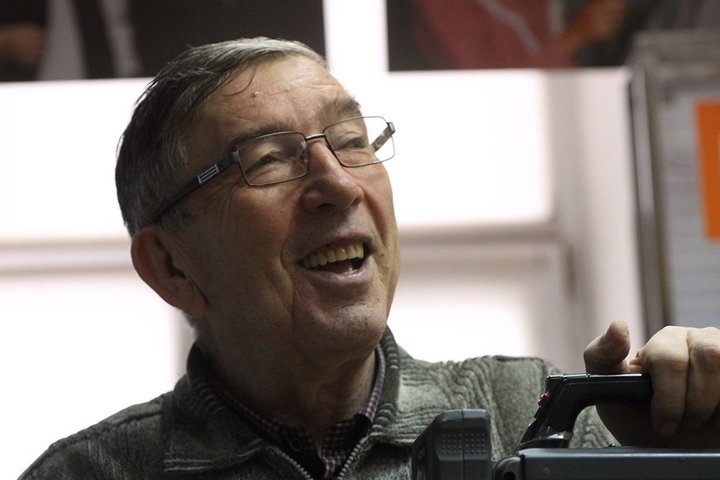
In 2025, for the first time in history, a filmmaker has been nominated for the Gabdulla Tuqay State Prize. This is the legend of Tatarstan television, famous cinematographer Yury Gvozd. He has been in the profession for 57 years and during this time has created more than 80 films of various genres. The candidate for the award told in an interview with Realnoe Vremya what this nomination means for the republican cinema, how the cameraman profession has evolved and whether it is possible to revive the Kazan Film Studio.
“I knew exactly who I was going to become”
Yury Gvozd is 75 years old, but he still continues to make films and actively participate in the life of Tatarstan cinema. For the interview, he invited Realnoe Vremya journalists to the Museum of the History of Tatarstan Journalism in the Union of Journalists of the Republic of Tatarstan. Here, among the exhibits, Yury Gvozd's camera is kept, with which he began his story.
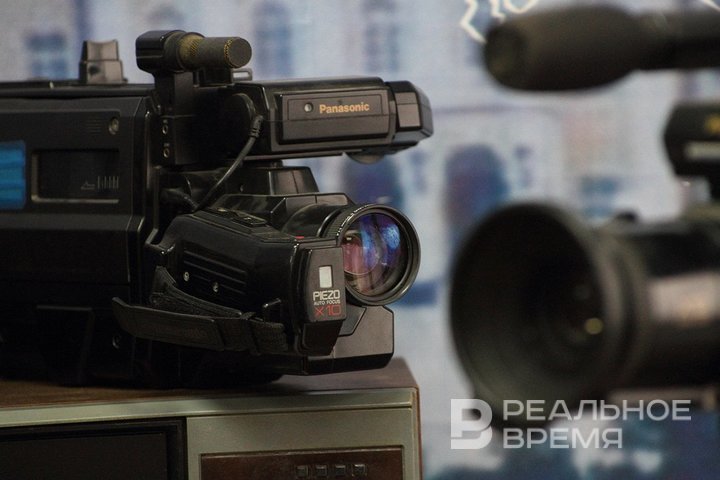
Mr Gvozd, when did you get your first camera in your hands?
I already decided in the fifth grade whom I was going to be, I chose the profession of cinematographer. I learned that VGIK graduates them, and as an ambitious person I went to my dream. I was born in Germany, in Berlin, my father was a military pilot and was fond of photography. And then, when we moved to Kazan, we had a studio apartment where my father, mother, me and my brother lived. They put a photo enlarger on the table where we had lunch in the evening. That's probably where my hobby came from.
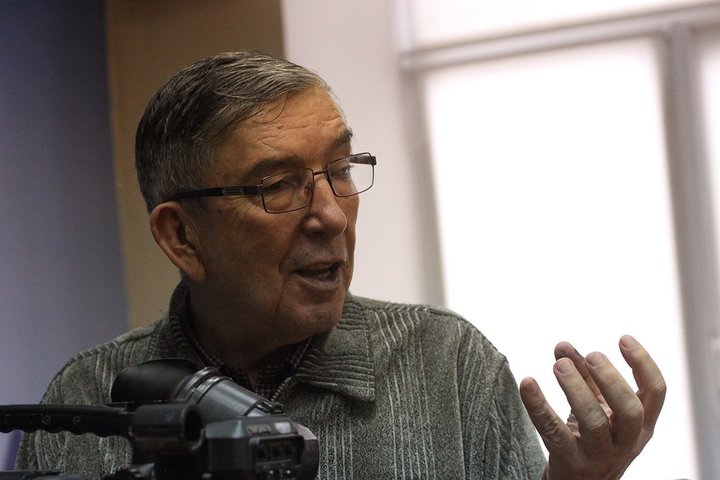
Somewhere in the sixth grade, in order to shoot professionally, I signed up for a photo studio in the Alisha Palace of Pioneers, where there was powerful equipment. We were trained there in a serious way. Before and after us, well-known professional cameramen and photojournalists came from this studio, some of them went to Moscow. The studio's level was very high.
“It's better to be the first guy in the village than the last in the city”
Was it easy for you to get into VGIK?
For admission, it was required not only to pass exams, but also to do a creative task. To enroll in the cinematography department, it was necessary to send 25-30 photographs by parcel. If the examiners decide that the work is at a good level, only then will you be called to take the exams. I know that in the year of my admission, 600 people sent their photos, 300 were called for the exam, and only 10 got in. I ended up in the top ten. I want to say that photography is the foundation. There was no cinema in the first or second year of VGIK. We went through everything related to photography — composition, shooting portraits, still lifes, busts. Cinema started only in the third year.
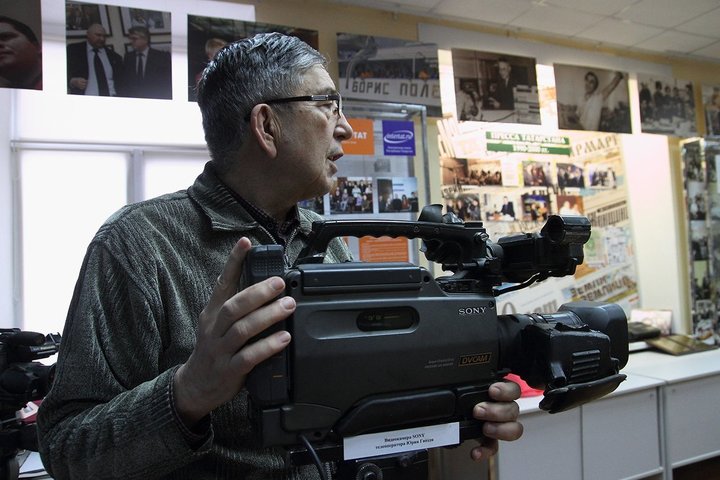
“The whole studio was looking at us askance”
You are called the first professional cameraman on television. How has the operator's profession evolved?
I would say not the first professional, but the first certified operator. When I started working on TV, we had a film group with four or five cameramen. They were all former assistant cameramen at the film studio, and one had worked even before the war. All of them had no special education, but they were real professionals, as they had a lot of experience.
The operators had clear categories, they were divided into: an assistant of the first category, then an operator of the third, second, first and highest categories. Like officer ranks. Salaries also increased depending on these categories. For example, the third category of operators received 130-140 rubles, and the highest category — 250 rubles. This was at a time when people were receiving 100 rubles a month, meaning the salary of the operators was at a very good level. I remember we had an Estonian operator who bought a scooter with his salary alone.
The highest category had a salary of 250 rubles. Ordinary cameramen in the studio worked without a fee. The whole studio looked askance at us for this and, if possible, joked that we were from Hollywood. After a while, we started getting crazy money. That's because they somehow calculated it wrong in Moscow, it turned out that one story costs 50 rubles (and that's half the average salary). They just took the prices by analogy with big stories, such as in the film magazine “On the Volga Wide”, for example, which were filmed for a week or 10 days. And we shot two or even three such scenes a day. But it didn't last long.
I don't remember making any major purchases. I had nothing. I didn't want to. At that time, I was always working and didn't go on vacation at all. My whole life in the studio. I was young and single. The interesting question now is where the money went then. I can't tell. Maybe to chat with friends.
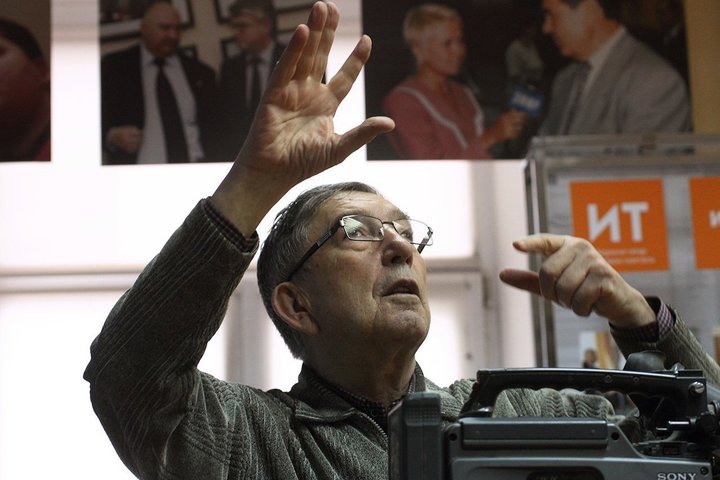
“A cinematographer is a chronicler”
The good thing about my profession is that we've seen different people before. From milkmaid to Yeltsin. Not counting all our officials of different ranks. Public people are actors to some extent. I worked with Mintimer Shaimiev and Farid Mukhametshin. It requires intelligence and knowledge of etiquette and diplomacy. You need to understand and feel when you can shoot, and when you can't, don't push, as some photographers and cameramen are doing now. The upper classes appreciated it very much. Because anything could happen. For example, when you shoot Yeltsin and he's not at his best, you have to manage to shoot him so that he looks decent in the frame. There were a lot of nuances, but that was the point of interest.
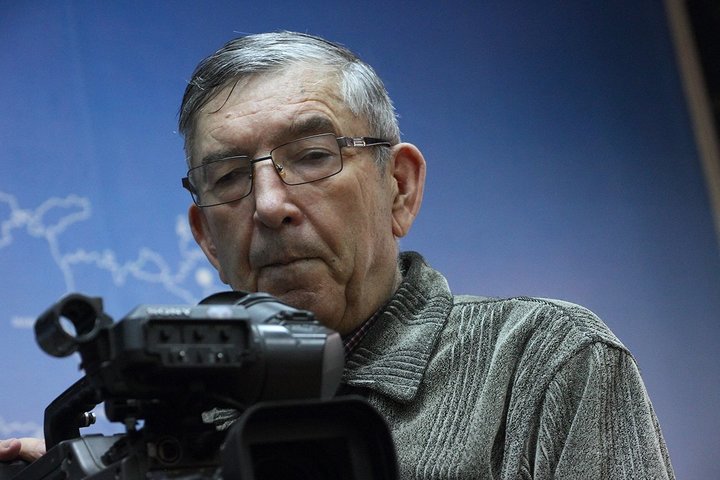
Was the operator's profession prestigious?
Yes, then very much. Firstly, in terms of money. And secondly, everyone knew the operator. The operator was logged into all the offices. The role of the operator was very important, because everyone, especially high-ranking officials, knew that it depended on him how the people would see them. Their activities could be shown through the TV, which was then watched by everyone, and there was nothing else to watch. All the operators were known by name. Everyone tried to be friends with us in a good way.
Then there was one TV company, and everyone watched only one channel, including the leaders of the republic. The role of TV was very high. In many ways, the evaluation of the official's activities depended on television. It's the same with the actors. The actors understood that they could only become famous through TV and movies, because they remained in history. Previously, everything we shot went to the archive, and the materials are still stored there. And now it's just a stream.
Documentaries are our story. A cinematographer is a chronicler. I remember such a shoot, Khrushchev came to Kazan in 1962, and there are still interesting shots of these shootings, even if you shoot a comedy. If you remember, then everyone wore long raincoats and hats. There is such a frame. The Omik is approaching the shore. Khrushchev comes down the ramp, followed by a group of fifteen people, such a gray mass. Khrushchev comes out, takes off his hat, wipes his bald spot and says, “Oh, good.” And I see everyone taking off their hats in the back. It's all shot in one shot. Then Khrushchev hands the hat to his assistants and begins to take off his raincoat, and all those standing behind him also begin to take off their raincoats. Here's a funny shot.
“Cinema is an entire industry”
You headed the Union of Cinematographers of the Republic of Tatarstan for two terms and are now a permanent member of the union's board. How do you assess the development of Tatarstan cinema today?
Now the main problem of Tatar cinema is the lack of a base. Take other types of art: writers or composers can sit somewhere and write their works. And cinema is an entire industry that requires a certain structure with its own technical base, for example, as at Mosfilm, where you can organize the filming process. And how is it working out now? If one of the directors is shooting something, for example, a feature film, he himself is both a seamstress and a reaper. He is busy not only with filming directly, but also with finances, accounting and all other paperwork, that is, he cannot be engaged in creative work alone. Therefore, we need a structure for creators to create, so that there is a system, for example, like on television, where there is a car park, technical staff, and more.
Tatarkino cannot replace this structure. It is essentially a film and video rental company and an organisation that stores films. This is a warehouse in the good sense of the word. It's not about the filming process at all. However, in recent years, the filming of films based on the works of our Tatar writers has also begun on the basis of Tatarkino, which is also not bad.
When there were discussions about creating a film studio, they said, they say, here we will build a film studio, and who will make these films, where are the frames? And we have the personnel. Talented young people who study at the Kazan Institute of Culture receive a diploma and leave for Moscow. And now there is not even a discussion about the creation of a film studio. Priorities have shifted.
This year you are nominated for the Tuqay State Prize. How did you take this news?
This is a decision of the board of the Union of Cinematographers, and it's not about me. The thing is that representatives of many types of art are nominated — writers, composers, architects, actors and directors, etc. It is necessary to show the cinema that it exists and it is developing. Using someone else's example. In this case, using me as an example. The wording is for a significant contribution to the development of national cinema. This is a very important formulation. This is necessary to show through Gvozd that cinema exists. We still perceive it somehow casually. The fact that I am nominated is also a sign that there is an understanding that cinema is a kind of separate art that needs to be given more attention.